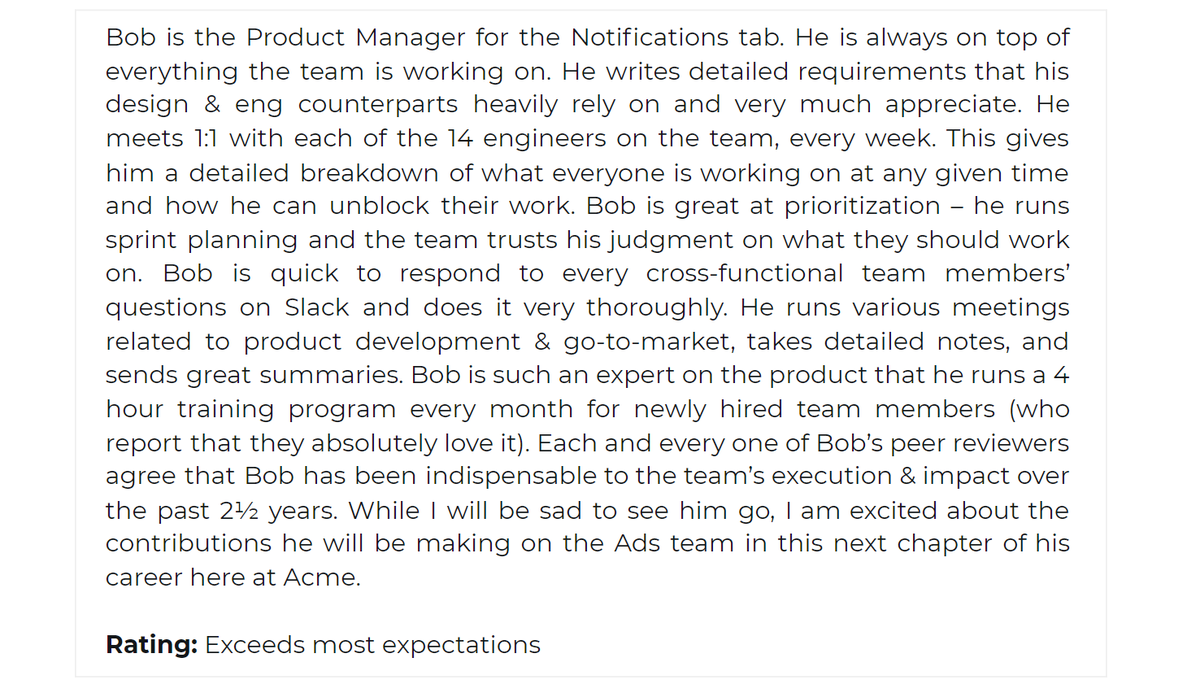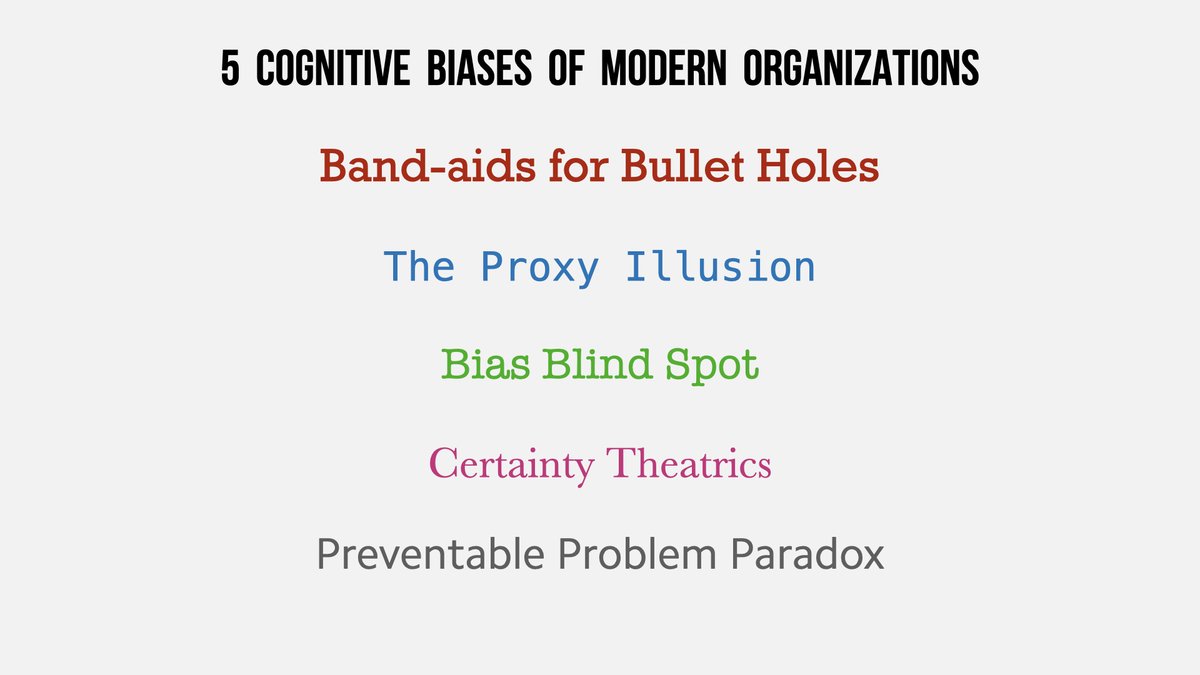
Context Matters Most, a short story:
Meet Bob, a Product Manager at Acme Inc.
After 2½ years of being a PM on his current team, he is excited to take on a new challenge as PM in a different org at Acme.
Here’s what his manager had to say about Bob's work thus far as a PM:
Meet Bob, a Product Manager at Acme Inc.
After 2½ years of being a PM on his current team, he is excited to take on a new challenge as PM in a different org at Acme.
Here’s what his manager had to say about Bob's work thus far as a PM:

Fast-forward 6 months. Things are not going so well for Bob on his new team.
Here’s what his new manager has to say about Bob's work over these 6 months:
Here’s what his new manager has to say about Bob's work over these 6 months:

Same person, same behaviors, different contexts, very different outcomes.
What could Bob have done to avoid this situation on the new team?
Frankly, Bob could not have avoided this situation on his own. As a first-time PM on the Notifications team, he was very successful because he (unwittingly) did what strong PMs are supposed to do: manage based on the context of the team & the product.
Bob’s “be at the center-of-everything” style was *exactly* what the Notifications team needed. But no one bothered to coach Bob that this is not the only operating style of successful PMs. Not knowing any better, Bob replicated & doubled down on his default style on the Ads team.
Now, the Ads team was already very empowered & independent. The same micromanagement that the Notifications team found very useful, the Ads engineers & designers found stifling. Naturally then, Bob was left confused about what really went wrong. Was it him or was it his new team?
Here's the reality:
You can get good at product management by becoming an expert in one style. But if you want to be great at it and create much greater career optionality for yourself, you need to be a lot more adaptive.
You can get good at product management by becoming an expert in one style. But if you want to be great at it and create much greater career optionality for yourself, you need to be a lot more adaptive.
Don’t be dogmatic about the “one right way”.
There may actually be a “one right way” of doing things on a given team, but show me 10 different teams & companies, and I will show you 11 different “right ways”.
There may actually be a “one right way” of doing things on a given team, but show me 10 different teams & companies, and I will show you 11 different “right ways”.
Back to Bob though, being a newish PM with experience on only one team, he really stood no chance here without his original manager on the Notifications team and his new manager on the Ads team coaching him on the difference in contexts and the need for him to be more adaptive.
Sadly, many PM leaders are themselves unaware that context should inform a PM’s approach more than generic best practices. Often, PM leaders are themselves trying to repeat the formulas that previously worked for *them* at Google / Facebook / other megacorp, with limited success.
Which brings me to the 2 most important takeaways of this thread:
1) Context matters most
2) It is a product leader’s vital responsibility to be a skilled reader of current context & an effective coach on how to best operate within that context
1) Context matters most
2) It is a product leader’s vital responsibility to be a skilled reader of current context & an effective coach on how to best operate within that context
A good product leader can tell when it makes sense to ditch defaults vs. when it makes sense to double-down on them.
So look for this skill if you are looking to hire a product leader (as a founder/CEO) or looking to work with one (as a PM).
As for what happened to Bob, I like to imagine that after a rocky first 6 months, he got a new manager who was highly skilled in contextual coaching, and so Bob was able to adapt his style to focus on the high leverage stuff himself & empower his team members much more.
THE END.
THE END.
Back to the top of this thread:
https://twitter.com/shreyas/status/1400825274401394691
• • •
Missing some Tweet in this thread? You can try to
force a refresh




